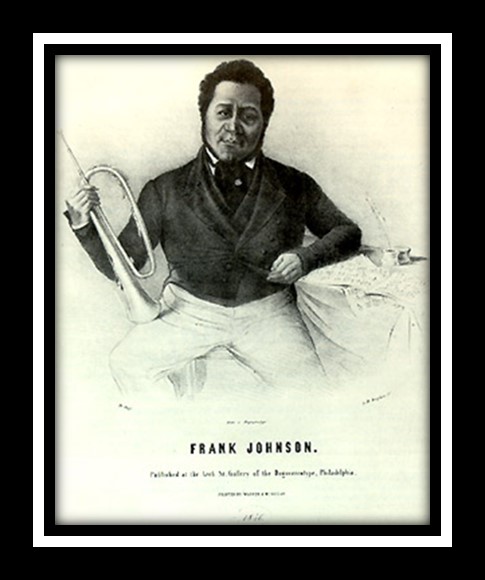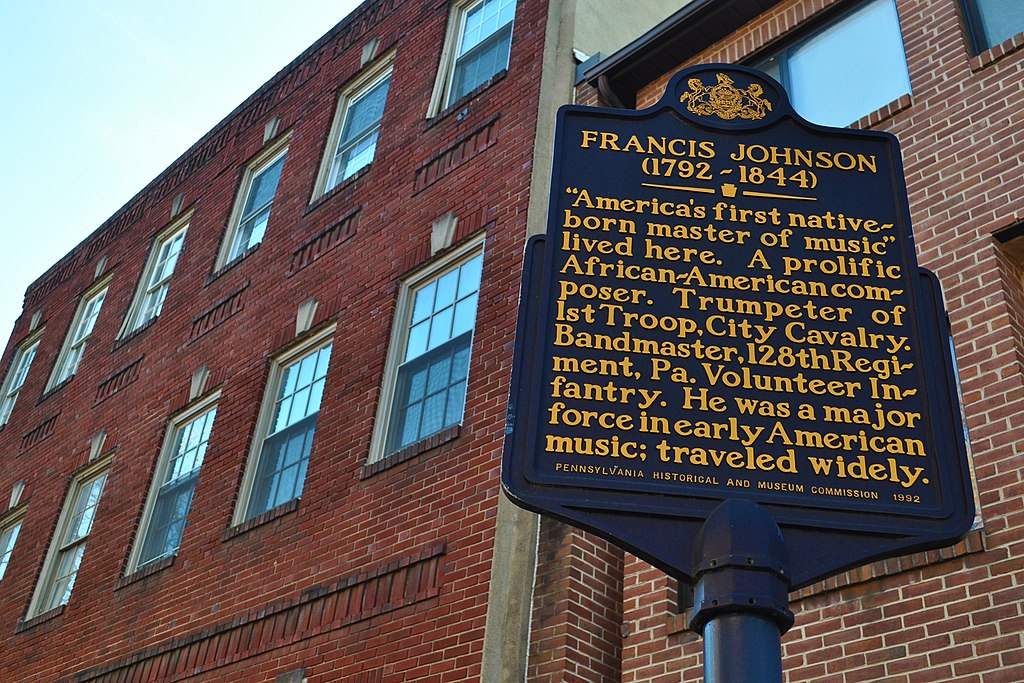
Band Music in Philadelphia: Francis (Frank) Johnson
According to K. Robert Schwarz, research assistant at the Institute for Studies in American Music at Brooklyn College, "no one better demonstrates a composer's triumph over racism than Francis (Frank) Johnson. Johnson, whose career was centered in Philadelphia, was internationally renowned as a [keyed] bugle virtuoso and bandleader" (Schwarz 1990). According to Charles K. Jones and Lorenzo K. Greenwich, Johnson:
was the most sought-after composer and bandmaster of the first half of nineteenth-century America. Through his compositions he preserved the pride, the glory, the promise, and the excitement of an expanding new Republic. Among which may be found the nadir of what has come to be known, the world-over, as American's most significant cultural contribution: the "Negro Spiritual." It was Johnson who, in 1837, presented the first band of American musicians to Europe; and it was he who introduced America to the waltzes of Johann Strauss as well as the concept of Philippe Musard's celebrated "promenade Concerts" in 1838. As leader of the Band at all hops and balls-public and private--; sole director of all serenades, acceptable and not acceptable; inventor-general of cotillions, Francis Johnson became the pivotal force in the development of early American music.
(A Choice Collection of the Works of Francis Johnson: Preface
1983)
In 1817, George Willig published Johnson's Collection of New Cotillions-the first time a musical composition was published from a Black band leader-after which Johnson's popularity grew to an even greater extent in Philadelphia's high society as a leading dance band conductor (Mack 2010). As a composer and arranger for string and brass band, Johnson's musical output numbered "more than two hundred compositions including cotillions, quadrilles, quick-step and other marches, stylized dances, sentimental ballads, patriotic songs, arrangements of operatic airs, and even Ethiopian minstrel songs" (Southern 1997, 111).
Watch an audio-visual narration about Johnson's life and music, listen to a collection of his cotillions played on piano by Donald Lee II, and view a variety of his complete works at the following link: Complete Works

Ep.4 Francis B. Johnson - Black Excellence Series [ 00:00-00:00 ]

Francis Johnson: A Collection of New Cotillions (1818)
A popular composition by Johnson was his "New Bird Waltz" in which could be heard the chirping of the canary bird, which would have been played on the violin in its upper register. This work's premiere performance was given at a grand concert of February 13, 1844, at the Chinese Saloon, in Philadelphia. "New Bird Waltz" score is available at the William L. Clements Library of the University of Michigan (Johnson, Jones & Greenwich 1983, 220).

The New Bird Waltz by Francis Johnson







